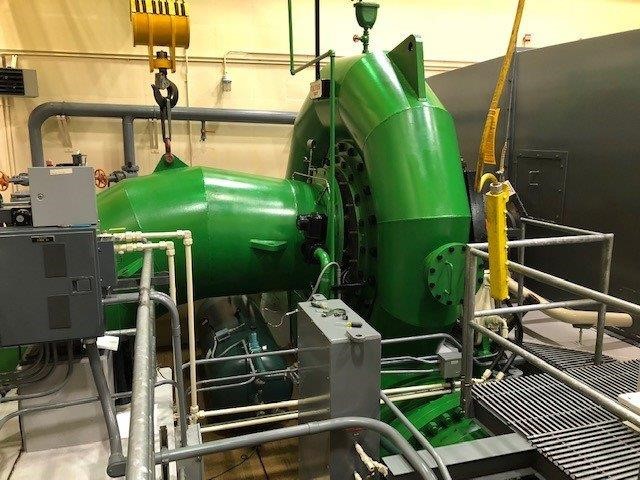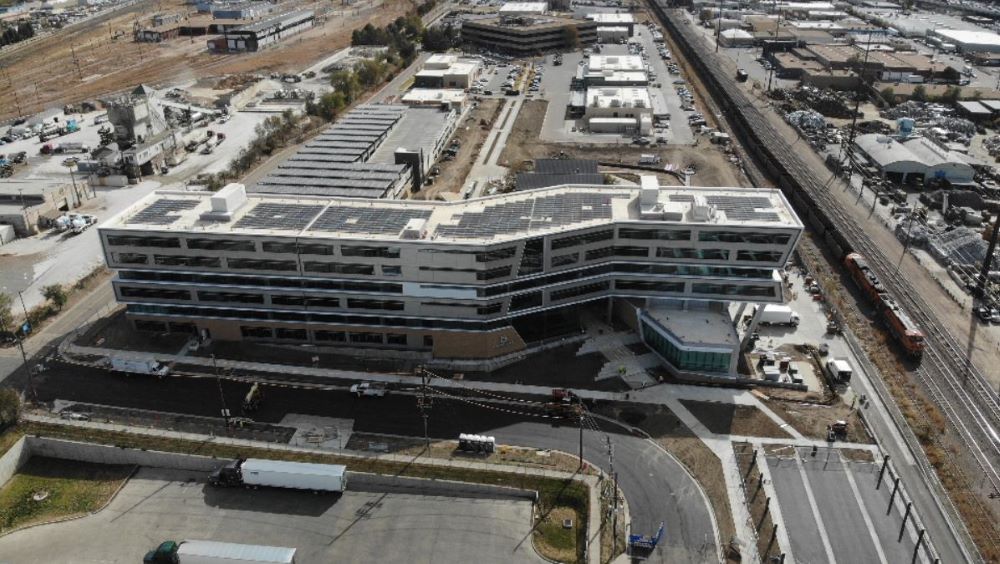As the oldest and largest water utility in Colorado, Denver Water is fully aware of the water-energy nexus, and we're extremely focused on conserving resources.
The energy needed to collect, store, treat and distribute water continues to decrease because of policy and behavioral changes, technologically efficient upgrades, and renewable hydropower generation within our operations.
Goals that have been met
- Organizational energy portfolio is tracked and reported continually, with a goal of continued energy neutrality.
- Renewable energy, including hydroelectric generation and photovoltaic systems, is in place at nine sites with 26.5 megawatts of capacity and average production of 60,000 MWh.
- Innovative efficiency systems, including thermal heat recovery at the main Operations Complex, are used to drive down demand.
- Treatment plants continue to adjust operating hours and processes to conserve energy when possible.
Current initiatives
Northwater Treatment Plant (Energy)
Hydropower generation equipment at site of the Northwater plant will produce enough energy to operate the treatment plant, significantly reducing carbon dioxide emissions. The Northwater Treatment Plant will use 52% less energy at this facility compared to industry norms, and space has been allocated for additional hydroturbines and solar generation in the future.
In pictures
Planning for our future
Energy use and supply
Goals:
- Reduce organization-wide greenhouse gas emissions 50% from 2015 baseline by 2025.
- Maintain energy neutrality while decreasing energy use (electricity and natural gas) 10% from baseline (2015-2019 average annual use) by 2025.
- Increase Denver Water energy portfolio by 1 megawatt of renewable energy by 2025.
Commitments:
- Install occupancy/vacancy sensors on all new construction and renovation.
- Upgrade to LED on all new and replacement lighting.
- Offset at least 50% of energy use with renewable energy generation, preferably on site, with all new construction and major renovation projects.
- Continue to improve hydroelectric system operations with holistic integration of water resources, maintenance planning and contractual obligations.
- Maximize participation and benefits available through demand-side management programs, utility incentives and external efficiency sources when applicable.
- Continue to participate in the Carbon Footprint Registry program to qualify Denver Water’s greenhouse gas inventory for higher certification.
Transportation
Goal:
- Update Denver Water idling policy to include idle-free campuses by 2022.
Standard:
- Uphold Denver Water idling policy with continued annual reporting and goals for reduction.
Commitment:
- Monitor all fleet vehicles with software for anti-idling and speed-limit fuel efficiency.





